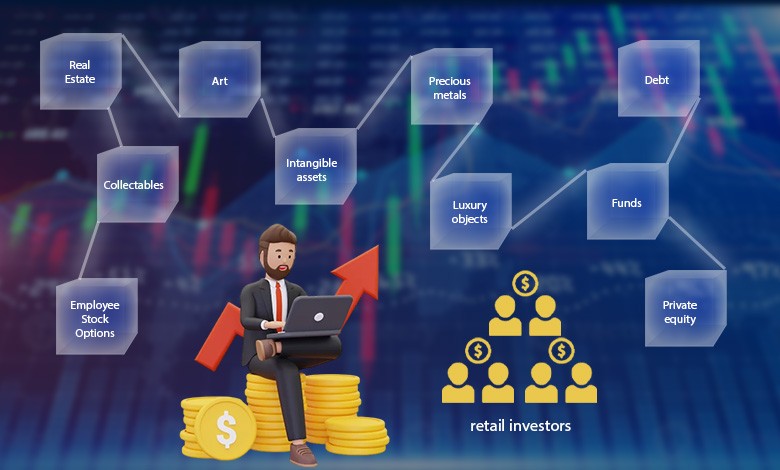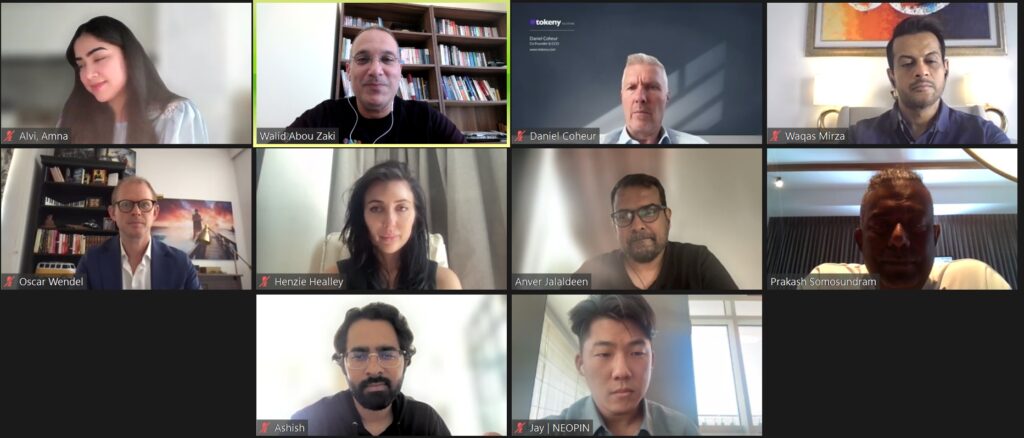Unveiling the Potential of Tokenization in Financial Markets: Insights from Industry Thought Leaders
Regulatory Dynamics: Striking the Balance Between Speed and Complexity

Tokenization, the transformative process of converting real-world assets into digital tokens on a blockchain, is poised to revolutionize the financial landscape. In a recent in-depth roundtable discussion among industry leaders, participants explored the multifaceted opportunities and challenges surrounding tokenization. This comprehensive report provides an extensive analysis of the key discussion points and nuanced insights shared during the dialogue.
Tokenization’s Role in Financial Evolution:
The discourse commenced with a deep dive into the role of tokenization as a catalyst for financial evolution. By fragmenting assets into tradable tokens, tokenization offers unprecedented liquidity and accessibility, democratizing investment opportunities. Participants delved into diverse use cases spanning real estate, private equity, and alternative investments, highlighting how tokenization unlocks value in traditionally illiquid markets. Moreover, the discussion underscored the potential for tokenization to foster financial inclusion by enabling fractional ownership, thereby empowering a broader spectrum of investors.
Navigating Regulatory Complexities:
In the UAE, tokenization has become a focal point of discussion, with regulators closely scrutinizing its potential, as emphasized in the latest statement from the CEO of VARA. Anticipated consultation papers from ADGM on the Regulatory Framework for Tokenized Real World Assets (RWA) are expected to begin possibly in early 2025. While the United States presents a challenging environment for cryptocurrencies, there is a noticeable surge in RWA tokenization projects originating from the US. Additionally, Europe, notably countries like Luxembourg and Switzerland, are witnessing significant engagement in the realm of tokenization.
Amidst these regulatory discussions, industry leaders emphasize the importance of avoiding overregulation. The sentiment within the industry is that there is a lot that can be accomplished within the current regulatory framework. “We are hoping to avoid overregulating,” remarks one industry insider. “Because I think that there is a lot of things that we can do today in the current regulatory environment. There’s not necessarily a need for new regulation, but there is a need to enforce existing ones”
Regulatory considerations emerged as a pivotal aspect of the discussion, with participants emphasizing the imperative of navigating evolving regulatory landscapes. While acknowledging the need for regulatory oversight to protect investors and ensure market integrity, stakeholders highlighted the importance of regulatory clarity and harmonization to foster innovation. Insights were shared on engaging with regulators to address legal ambiguities and promote compliance while championing the benefits of tokenization for market efficiency and transparency.
Market Dynamics and Investor Sentiment:
The dialogue pivoted to explore evolving market dynamics and investor sentiment surrounding tokenized assets. Participants exchanged perspectives on the growing appetite among both institutional and retail investors for exposure to tokenized assets. The discussion delved into the evolution of traditional financial assets like securities, highlighting the potential for technology to enhance existing processes. Alongside, there was a notable interest in exploring fund tokenization, evident from the recent consultation paper by the Investment Association in the UK.
Participants emphasized the significance of innovating financial market infrastructure to streamline operations effectively. Rather than solely pursuing new use cases such as fund tokenization, the focus remained on optimizing existing frameworks. This perspective resonated with broader conversations on investor sentiment, which also addressed concerns surrounding market volatility, security, and custody solutions. These discussions underscored the necessity for robust risk management frameworks and investor education initiatives.
Technological Advancements and Operational Enhancements:
Technology’s transformative role in facilitating tokenization and driving operational enhancements within financial markets was a focal point of discussion. Participants elucidated on the potential of blockchain technology to streamline processes, reduce intermediaries, and enhance transparency. Insights were shared on leveraging smart contracts for automated compliance and programmable functionalities to enable innovative financial products. Furthermore, discussions extended to interoperability challenges, scalability concerns, and the evolution of decentralized finance (DeFi) ecosystems as integral components of the tokenization landscape.
The observation made is that while there have been numerous attempts to tokenize existing products, participant believes the real potential lies in crafting digitally native products directly on a blockchain. This method not only ensures adherence to regulatory standards but also maximizes the advantages offered by blockchain technology. They stress the importance of transitioning towards engaging with market structures built on smart contracts and interoperable protocols, rather than focusing solely on end-users. Additionally, they underscore the necessity for regulators to recognize and accommodate this shift in their approaches.
There appears to be significant potential in leveraging blockchain technology to disrupt existing markets and broaden distribution opportunities, particularly for retail investors. However, regulatory concerns often arise as projects target retail investors, focusing on token safety and investor protection. Institutional support currently seems more robust. Nevertheless, a recurring question remains: why tokenize in the first place? Many fail to grasp the immediate benefits, but these often manifest once critical mass is attained. These benefits include expanded distribution and increased liquidity in secondary markets. However, these advantages may take time to materialize and are not immediate.

Next Steps:
As the industry charts a course towards embracing tokenization, concerted efforts must be directed towards regulatory engagement, market education, and technological innovation. Continued dialogue, research, and pilot projects will be instrumental in navigating the evolving landscape and capitalizing on emerging opportunities. By fostering an ecosystem conducive to innovation and collaboration, stakeholders can pave the way for a more inclusive, resilient, and efficient financial future.
Special thanks to participants: Gabrielle Inzirillo, Oscar Wendel, Henzie Healley, Waqas Mirza, Jay Lee, Anthony Bassili, Daniel Coheur, Prakash Somosundram, Ashish Kumar Singh, Anver Jaladeen and Amna Alvi / Moderated by Walid Abou Zaki





